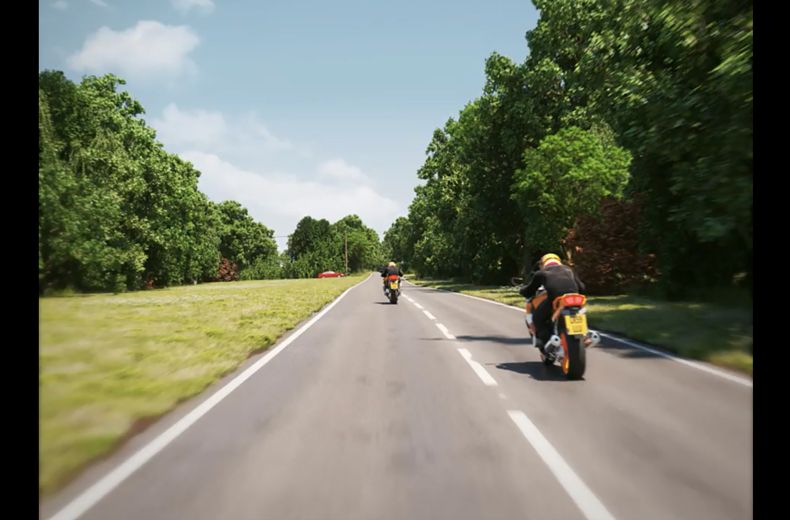The new video clips will show a scenario of different driving conditions, like driving through a town centre or on a country road. Learners will then need to answer 3 multiple-choice questions about the clip.
The changes follow research done with learners who have reading difficulties and disabilities. It showed learners felt more comfortable and confident with video scenarios, rather than written ones, as they were better able to process the information on screen.
Here's an example of what the new clips will look like:
DVSA Chief Driving Examiner, Mark Winn, said: "DVSA's priority is to help everyone through a lifetime of safe driving. "Being able to drive can be life changing and the DVSA is committed to helping everyone access the opportunities driving can offer.
"We have worked closely with road safety experts and learners to create a theory test which fully tests a candidate's knowledge of the rules of the road and is more accessible."
RAC spokesman Simon Williams said: "This is a very positive change and should make the driving theory test accessible to many more people as watching case study videos is far more reflective of real-world driving than having to read them and then answer questions.
"We know from RAC research that being able to drive is an important milestone in people’s lives as it allows them to get around more easily. This is particularly true for those who live in more rural locations."
- How to drive a manual car - a quick and easy guide with pictures
- Pass your driving test - a full guide from novice to pro
- Driving with a disability: everything you need to know
- Learner driver insurance - from 2 hours to 5 months
As well as making the test more accessible, DVSA say that the changes make the test more realistic, as it mirrors the way candidates take in and react to information while driving.
DVSA worked with the National Autistic Society, the British Dyslexia Association and British Deaf Association amongst other orgsanisations to develop the changes.
John Rogers, from the Disability Driving Instructors said: "A picture paints a thousand words, especially for candidates with special educational needs.
"Having to go back and forth between the text in the written scenario and the written questions and answers was a big obstacle to understanding what was required.
"Video scenarios should prove much easier to follow and the questions will hopefully appear more relevant."
In 2019 the Department for Transport launched its Inclusive Transport Strategy designed to make the UK's transport system better for disabled people.
They claim the changes to the theory test will help improve access to driving, helping people stay in touch with friends and family, contribute to society and access vital services such as healthcare and education.
The introduction of the new video clips only applies to the car theory test and will roll out in April.
Learning to drive? We have plenty of free advice and tips for learner drivers to help you pass first time.
Black Box Insurance
Want to pay less for your car insurance? Whether you’re a new driver or just looking to reduce costs, we can help.








